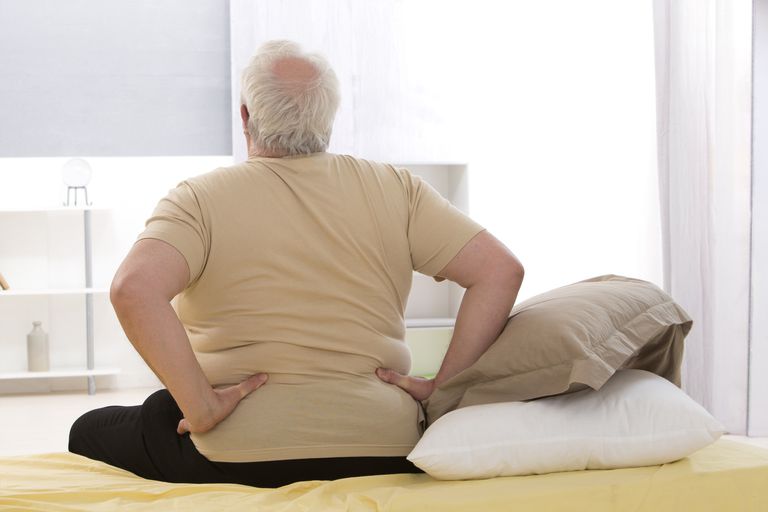Medical professionals believe that obesity is a condition. Overweight and obesity are serious health issues that can affect anyone, including children. Undoubtedly, the most of you are aware that obesity can contribute to serious health issues like colon cancer, diabetes, high blood pressure, and coronary heart disease (CAD).
Call to schedule an appointment with Dr. Vivek Bonde, the top neurosurgeon in Pune, if you are experiencing back discomfort.
Obesity is classified into two types.
Obesity is classified as either Healthy or Unhealthy Obese.
The only issues that the healthy obese have are mechanical ones. On the other hand, unhealthy obese persons acquire insulin resistance and are vulnerable to the above-mentioned illnesses. In addition to these, a lot of inflammation in the body is frequently the cause of even more excruciating pain.
You might not be aware, though, that being overweight places stress on virtually all of your body’s organs. Therefore, those extra pounds significantly contribute to back pain. The symptoms of osteoporosis, osteoarthritis, spinal stenosis, arthritis, sciatica, degenerative disc disease, and spondylolisthesis may indeed be made worse by fat.
How Obesity or being overweight may affect the spine?
Your spine is designed to support your weight and evenly distribute the strain you experience at rest and during exercise. If you are overweight, the significant pressure may destabilise your spine, leading to structural problems as it is forced to carry the tension. The most vulnerable area of the spine, the lower back, is adversely affected by obesity (the lumbar spine).
When you are overweight, your pelvis may have a tendency to tilt forward, especially in the centre. Your back muscles and ligaments are under more strain the more weight you gain. Over time, your spine may start to sag and lose its natural curve. Multiple ways in which the cumulative effects of weight-related risks could damage spinal discs and other structural elements include:
- Your risk of developing degenerative disc disease rises from 30% to 79% as you gain weight.
- The added strain on the discs may cause them to herniate, which would result in sciatica.
- Insufficient back muscle support results from impaired muscle function. The paraspinal musculature becomes less supportive due to fatty infiltration.
- Increased weight may result in bursts or discs, which can irritate nearby nerves and lead to piriformis discomfort.
- Additionally, being overweight may significantly increase the risk of developing osteoarthritis or having spine arthritis worsen.
- Gaining weight not only puts extra strain on your joints and back, but it also raises your risk of injury.
It goes without saying that the joints are strained when carrying a lot of heft. This is especially true if you currently have joint conditions that affect the alignment and functionality of your joints. A rise in the production of pro-inflammatory chemicals is frequently associated with additional adipose tissue (fat), which may exacerbate tissue damage and lead to back discomfort.
Extra fat also hinders the body’s ability to respond to insulin, which raises blood sugar levels, increases the production of free radicals and pro-inflammatory cytokines, reduces the body’s ability to repair, and leaves the body with insufficient energy to carry out daily chores. Thus, it is not surprising that being overweight may cause rapid tissue development, inflammation, slower damage recovery, and increased discomfort.
When your back hurts, how can you lose weight?
A healthy and long-lasting way to lose weight is to cut back on processed carbohydrates and inflammatory seed oils.
Regular exercise has additional advantages. A ketogenic diet or intermittent fasting are also wise moves because they have been demonstrated to promote weight loss and reduce inflammatory indicators in the body. It is best to prevent frequent meals and insulin stimulation. Dietitians frequently base their recommendations on questionable research.
A balanced diet includes plenty of:
- Foods high in fibre, like fruits and vegetables
- proteins made of both plant and animal sources (vegetables, nuts, seeds, legumes and pulses)
- Healthy fats are found in cereals, nuts, and seeds.
- Vitamins and minerals.
- In addition, a healthy diet should contain refined carbohydrates, such as those made from white flour and high in sugar.
It would be beneficial if you ate healthily to provide your body the energy and nutrients it needs to be healthy, preventing weight gain and endangering the health of your spine. Your strength and resilience will develop as a result of a balanced diet and frequent exercise, strengthening your bones and reducing their susceptibility to injury.
Of course, having issues with your back or spine if you are overweight or fat. However, it is not the primary cause. It is essential to identify the underlying cause of your back discomfort and any additional factors that may be causing it. Aside from that, losing even a small amount of weight will undoubtedly be very helpful to you and may even help you avoid some back discomfort so that you may receive the necessary therapy.
For issues with back pain, call and make an appointment with Dr. Vivek Bonde, the best neurosurgeon in Pune.

